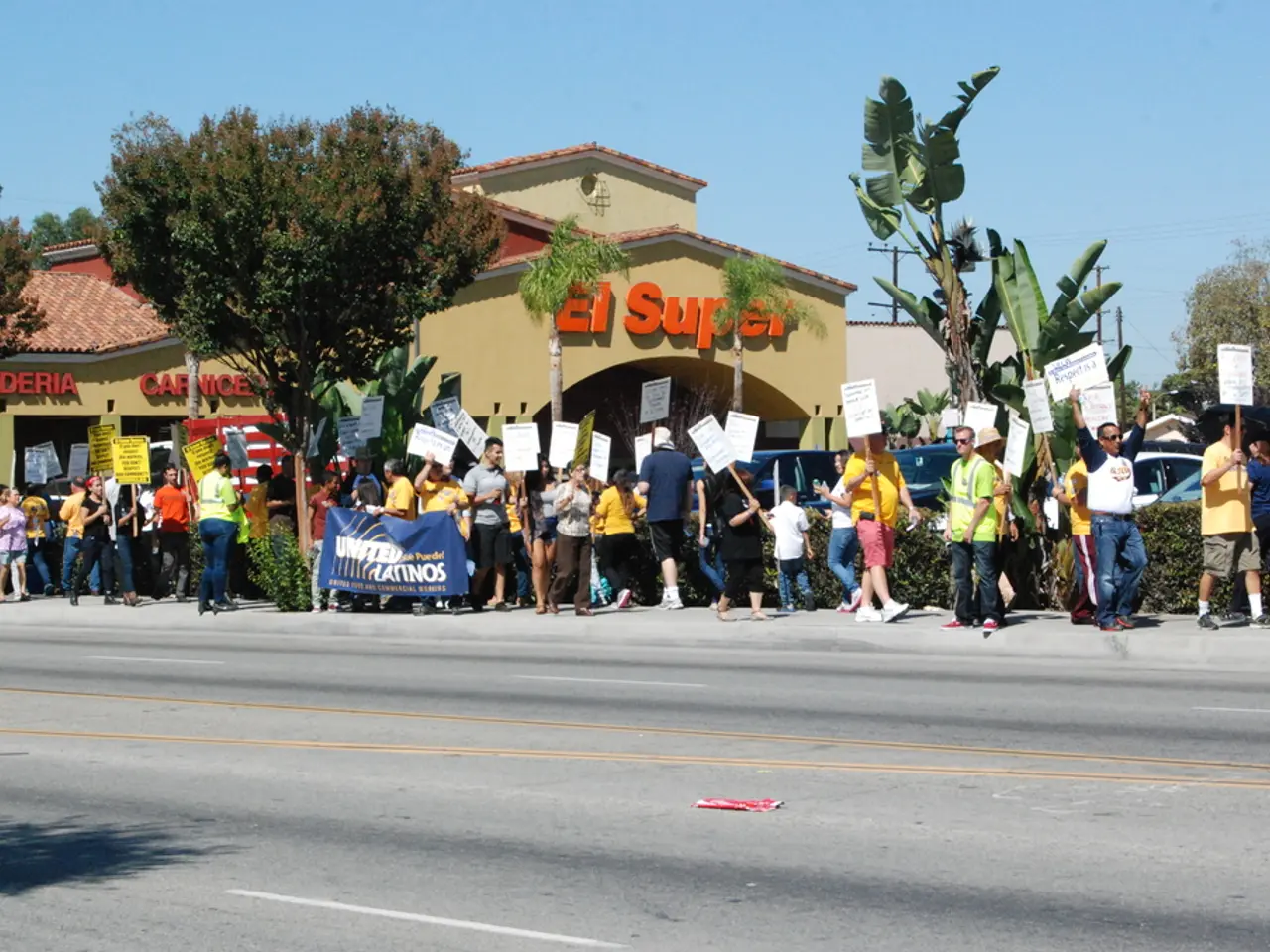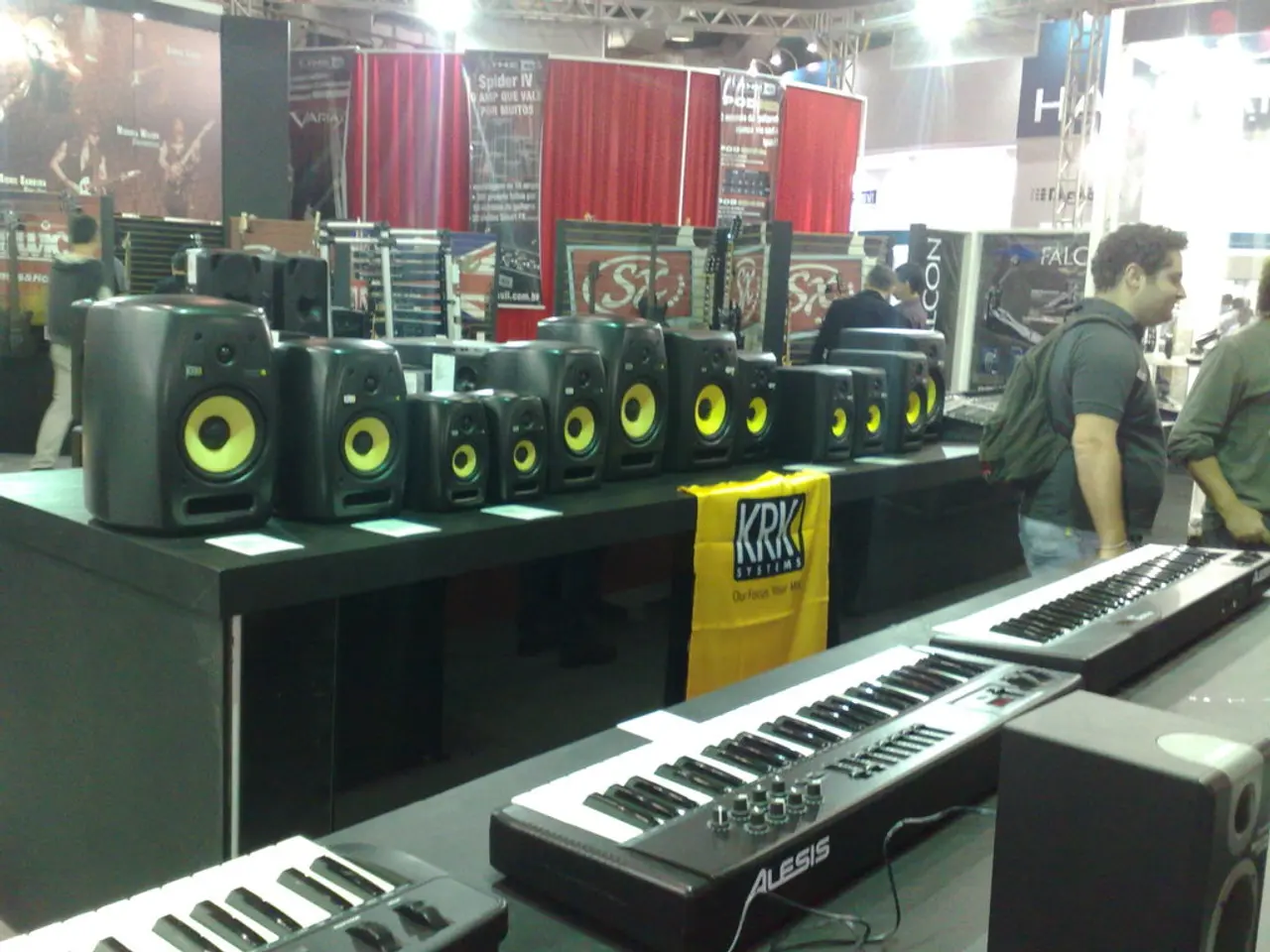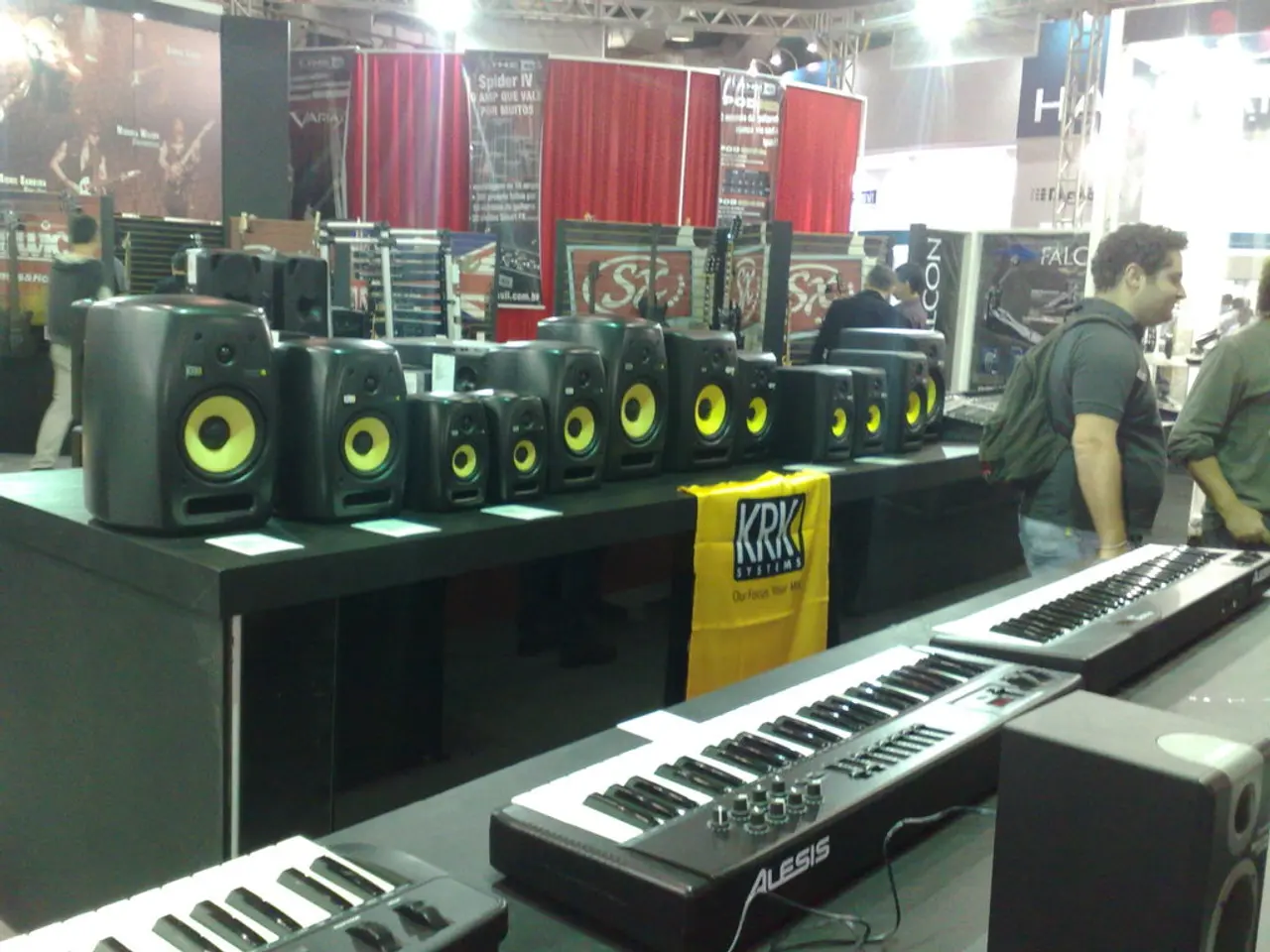Trump spends his initial 100 days in office emphasizing past feuds and complaints, with a predominant campaign-like approach.
President Donald Trump marked the 100th day of his second term with a rally in Warren, Michigan, a state affected by his tariffs. The event, the largest political gathering since his return to the White House, saw Trump defending his administration's policies and actions, including the contentious immigration agenda and tariffs on cars and auto parts.
Trump's immigration policies, under "Project 2025," aim for sweeping changes, including the elimination of sensitive zones, expansion of expedited removal, repeal of key immigration relief programs, abolition of the Diversity Visa Lottery, restriction of family-based immigration, new travel bans, mass deportations, and increased enforcement. These measures have sparked concerns over human rights, community impact, legal and due process issues, reduced diversity, and family reunification.
Elon Musk, a key figure in the administration, has advocated for tax cuts and significant reductions in government spending, including immigration enforcement budgets. This creates a tension between Musk's privatization and cost-cutting goals and Trump's expansive immigration crackdown policies.
In the realm of trade, Trump defended his steep tariffs on cars and auto parts during the rally. However, industry groups have urged the White House to scrap plans for tariffs on imported auto parts, warning of potential layoffs and bankruptcy. The impact of these tariffs was evident in the temporary layoff of 900 U.S. employees by automaker Stellantis due to the 25% tariff on imported vehicles.
Support for Trump's presidency remains divided, with only about 4 in 10 Americans approving of his handling of the office. Michigan, a crucial state for Republicans in 2026, will be a key battleground as they aim to pick up a Senate seat, regain the governor's office, and win competitive House races.
Trump's rally was not without controversy, as he attacked polling and news coverage not favourable to him, and continued to claim that he won the 2020 presidential election. The president also boasted about his administration's "mass deportation" efforts that have decreased arrests for illegal crossings along the U.S.-Mexico border.
Treasury Secretary Scott Bessent issued an executive order earlier Tuesday, relaxing some of Trump's tariffs on cars and auto parts, with the goal of enabling automakers to create more domestic manufacturing jobs. The order comes amidst ongoing debates and economic implications of Trump's trade and immigration policies.
[1] American Immigration Council. (2021). Fact Sheet: Trump Administration's Proposed Changes to the U.S. Immigration System. [2] Vox. (2021). Elon Musk is pushing back against Trump's immigration crackdown. [3] American Civil Liberties Union. (2021). Trump's Muslim Ban 3.0: A Legal Analysis. [4] Migration Policy Institute. (2021). Trump Administration's Proposed Changes to the U.S. Immigration System: A Comprehensive Overview. [5] Harvard University. (2021). Federal Court Allows Harvard University and MIT to Move Forward with Challenge to Trump Administration's International Student Rule.
- The ongoing debates about Trump's administration's policies and actions, including the controversial immigration agenda, are widely covered in general news and media outlets.
- In the world arena, Trump's immigration policies, such as The Project 2025, have raised global concerns regarding human rights, community impact, legal and due process issues, reduced diversity, and family reunification.
- The business sector, particularly the automotive industry, is at odds with Trump's tariffs on cars and auto parts, fearing layoffs and bankruptcy due to these protective measures.
- Trump's immigration policies and enforcement, with initiatives like mass deportations and travel bans, have been met with criticism and legal challenges from groups like the American Civil Liberties Union and Harvard University.
- The economic implications of Trump's trade and immigration policies, including the potential for job creation and the impact on various industries, are ongoing topics of discussion and policy-and-legislation debates within politics and the economy.








